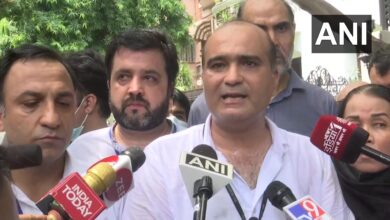Interview begins at the 03:30 mark in the playbar.
By Stacy M. Brown, NNPA Newswire Senior Correspondent
@StacyMediaBrown
As president, Democratic candidate Tom Steyer said he would pledge $125 billion over ten years to continuously fund and fortify historically black colleges and universities (HBCUs).
During a fireside chat with National Newspaper Publishers Association President and CEO Dr. Benjamin F. Chavis, Jr. in Las Vegas, Steyer also pledged to end the school-to-prison pipeline that has affected millions of minorities.
The candidate also promised a living wage for workers, a 10 percent tax cut for everyone making under $250,000 a year, affordable health care for all Americans, and reparations for African Americans.
Steyer told Chavis that he’ll fight to correct the wrongs done to African Americans, and he will use the power of the presidency to help solve the plight of the nation’s more than 64,000 black women and girls who have gone missing.
“There is no policy area in America that I don’t think has a substantial, often unmentioned, but important aspect about race,” Steyer told Chavis.
The interview was live-streamed and made available to millions of viewers across social media and the platforms of the Black Press of America.
“So, when you talk to me about housing, criminal justice, or wages or education or climate, I think it’s absolutely unrealistic to talk about it without bringing up the racial aspect of it, specifically regarding the black community,” said Steyer.
Noting that the nation’s Historically Black Colleges and Universities (HBCUs) have always been underfunded, Steyer shared that among his first acts as president, he would immediately adopt a policy where those schools would receive $125 billion in federal funding over ten years.
While reparations have been largely absent from the campaign trail, Steyer said he’s always been in favor of compensating African Americans for ravages of the transatlantic slave trade and all of the injustices that have occurred since.
“I’m the only person who will talk about reparations who is running,” Steyer stated. “I don’t think there’s any question, and I say to people, ‘did something terrible not happen? Are we not going to try and deliver justice for it? We’re the apology from the nation for what happened to African Americans?’”
If elected, Steyer said he’d impanel a formal commission on race on the first day of his presidency. “I would want it to be solution-oriented specifically with the idea of reparations,” Steyer stated.
“Black people don’t have fewer homes because they did something wrong; they were redlined. There has been legalized systematic injustice. If we’re too scared to talk about it, we’re too scared to solve it,” he stated.
“We need to figure out how to repair the damage. I don’t want to as a white person to say this is how we do it. I want to bring in the right people. We’re talking about a lot of money and knowing the best way to do it,” Steyer added.
Environmental injustice and access to affordable health care are also a significant part of Steyer’s campaign platform. “The government has been purchased by corporations. Those corporations include drug companies, private hospitals, and insurance companies. They’re charging double [in America] for what other advanced countries pay for health care, and our health care is arguably worst. Drug companies charge us ten times more for insulin.”
“I believe affordable health care is a right for every American. It’s the job of the government to go after those drug companies and drive down prices. I would build on the Affordable Care Act.”
“President Obama took the first step. Now we need to take the next step, which is to make sure everyone is covered, and the government drives down the prices. I will ruthlessly negotiate for America.”
Steyer also said he’s alarmed by the number of missing black women and girls, and the government must do something about it.
“Think about that number (64,000). That is more than the number of soldiers that we, as a country, lost in all of Vietnam. So, how can we not see that as something deserving of laser-like focus attention,” Steyer asked? “Are you kidding me? Sixty-four thousand girls?”
Steyer noted that during debates, none of the other candidates had addressed the issues that affect black people.




